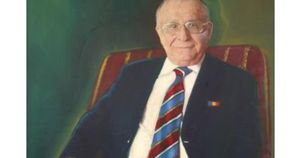OTTAWA — Buffy Sainte-Marie's distinction as one of Canada's most celebrated artists has been irrevocably altered as she is stripped of her Order of Canada, over two decades after she was first appointed. Announced late Friday, the termination of Sainte-Marie's appointment was officiated by Governor General Mary Simon through an ordinance dated January 3, 2025. This dramatic action has sent shockwaves through the cultural and Indigenous communities of Canada.
The notice, published on the government's official publication, came on the heels of heightened scrutiny surrounding the 82-year-old singer-songwriter's claims about her Indigenous ancestry, which had long been integral to her identity and artistic narrative. A 2023 investigation by CBC raised serious doubts about her heritage, leading to widespread public discourse about authenticity and representation.
According to the findings reported by CBC, records indicated Sainte-Marie was born on June 20, 1941, in Massachusetts, contradicting her previous statements which suggested she was born on the Piapot First Nation reserve outside of Regina, Saskatchewan. Documents reviewed during the investigation, including her birth certificate, categorize her and her parents as white, which intensified debates over her legitimacy within Indigenous circles.
Prior to the termination, Sainte-Marie had maintained her identity as part of the Indigenous community, claiming familial ties to the Cree nation. Her official website once stated, "believed to have been born on the Piapot reserve" and noted her subsequent adoption by Cree parents. Despite this, family members from the United States, including her sister, disputed her claims, stating Sainte-Marie was not adopted and asserting she did not possess Indigenous heritage.
Following the now-deleted page detailing her accolades and status as an Officer of the Order of Canada, representative figures and members from various Indigenous groups have reacted with mixed feelings. Some hailed the decision as necessary, reflecting the significance of truth and accountability, whereas others have lamented the loss of Sainte-Marie's representation and voice within the arts.
"The Office of the Secretary to the Governor General does not comment on the specifics of termination cases," stated the secretary general of the Order of Canada when asked for specifics surrounding the removal of Sainte-Marie's honour. The process itself is described as complex, where allegations against recipients could trigger reviews and potentially result in termination if the Advisory Council concurs with the findings. The last time such severe measures were taken was for only eight other individuals since the inception of the Order of Canada over fifty years ago.
Despite the termination of her appointment, Sainte-Marie's legacy as an artist and activist remains complex. Known for her contributions to Indigenous rights and her influential music career, she has been awarded multiple Junos and the Polaris Music Prize. Distinctively merging her heritage with her crafts, Sainte-Marie has been both vocal and proactive about Indigenous issues throughout her life.
Responding to CBC's scrutiny, Sainte-Marie described their report as riddled with "mistakes and omissions," asserting vehemently, "I have never lied about my identity." She expressed frustrations over the challenges of discussing complex cultural identities within rigid societal frameworks. "Being an 'Indian' has little to do with sperm tracking and colonial record keeping," she wrote. "It has to do with community, culture, knowledge, teachings, who claims you, who you love, who loves you and who’s your family."
The fallout from the investigation and subsequent termination of Sainte-Marie's appointment raises pivotal discussions about representation within both the cultural sector and Indigenous communities. While Sainte-Marie has long celebrated her heritage and her role as a voice for Indigenous rights, the discrepancies now cast doubt on her past claims and have puzzled supporters.
“The response from Indigenous communities has been divided, with some advocating for recognition of cultural connection irrespective of paper trails, yet others standing firm on the significance of historical accuracy,” said Indigenous rights advocate Kelly Lush. The controversy demonstrates the complications of identity politics and showcases how intertwined personal narratives can be challenged through formal documentation.
Closing the chapter on Sainte-Marie's illustrious career, which includes her recent retirement from live performances, this development leaves many pondering how historical contributions can be reconciled with contemporary truths. The ripple effects of this decision may impact future dialogues surrounding identity, honour, and the means by which cultural legacies are preserved.
With interviews from various artists, historians, and community leaders, the story of Buffy Sainte-Marie serves as both cautionary and enlightening, reminding us of the persistent need for authenticity within the ever-evolving discourse of identity and representation as it relates to Indigenous peoples of Canada.



